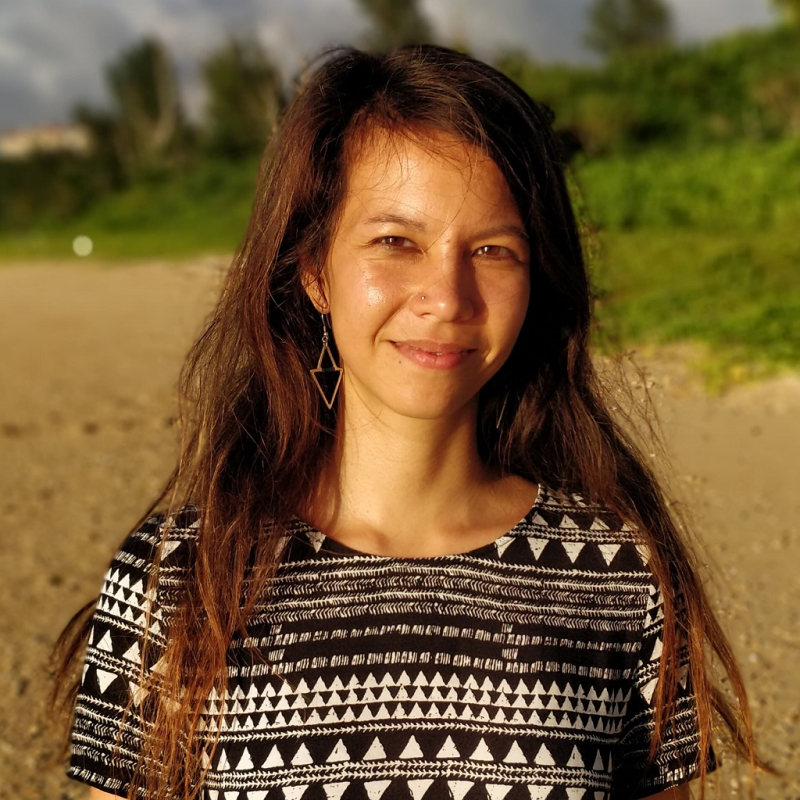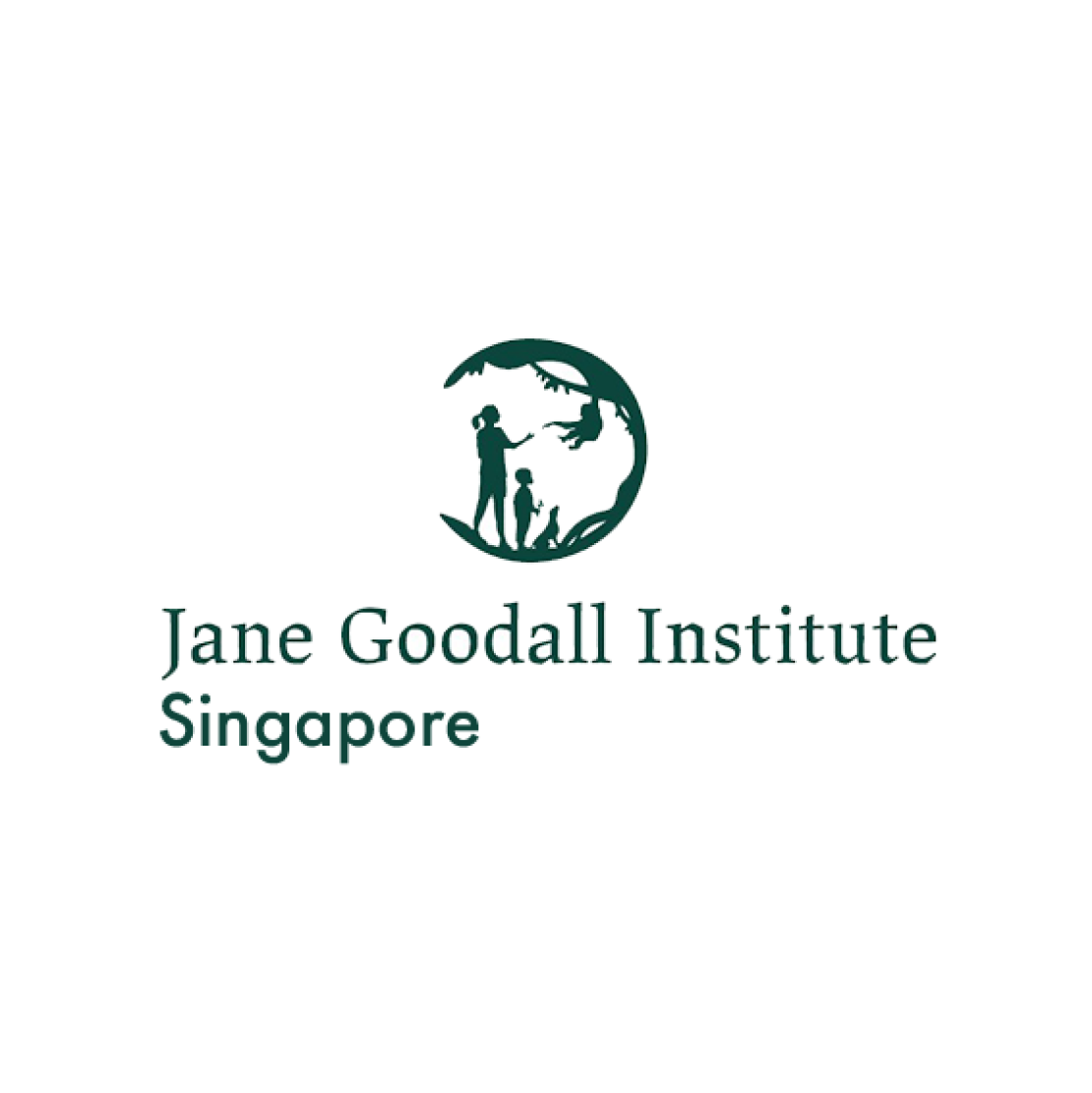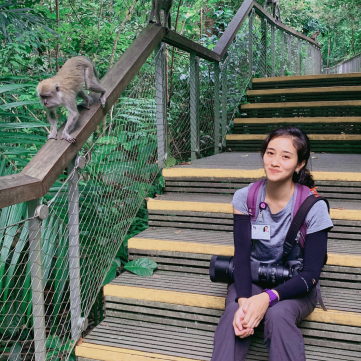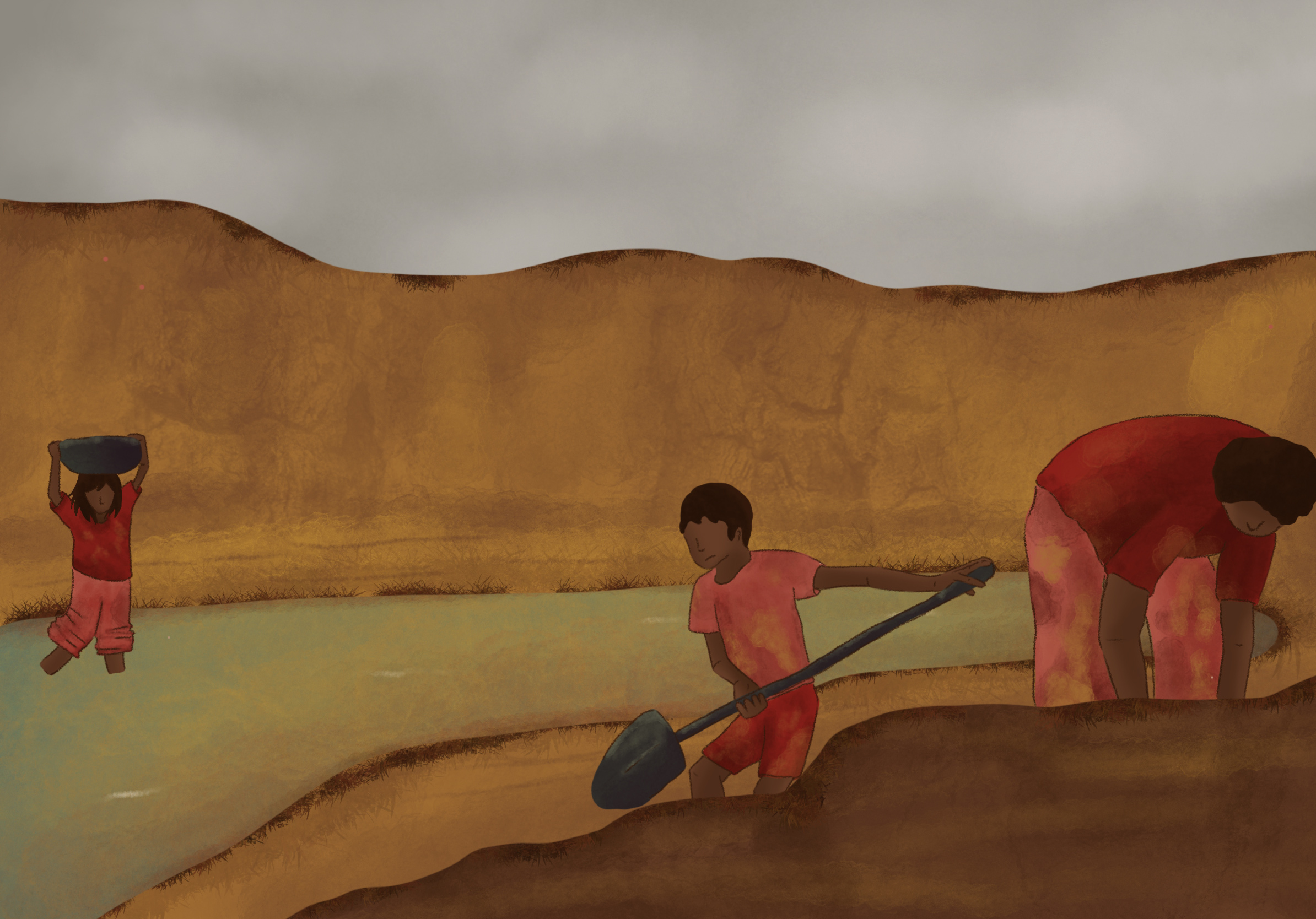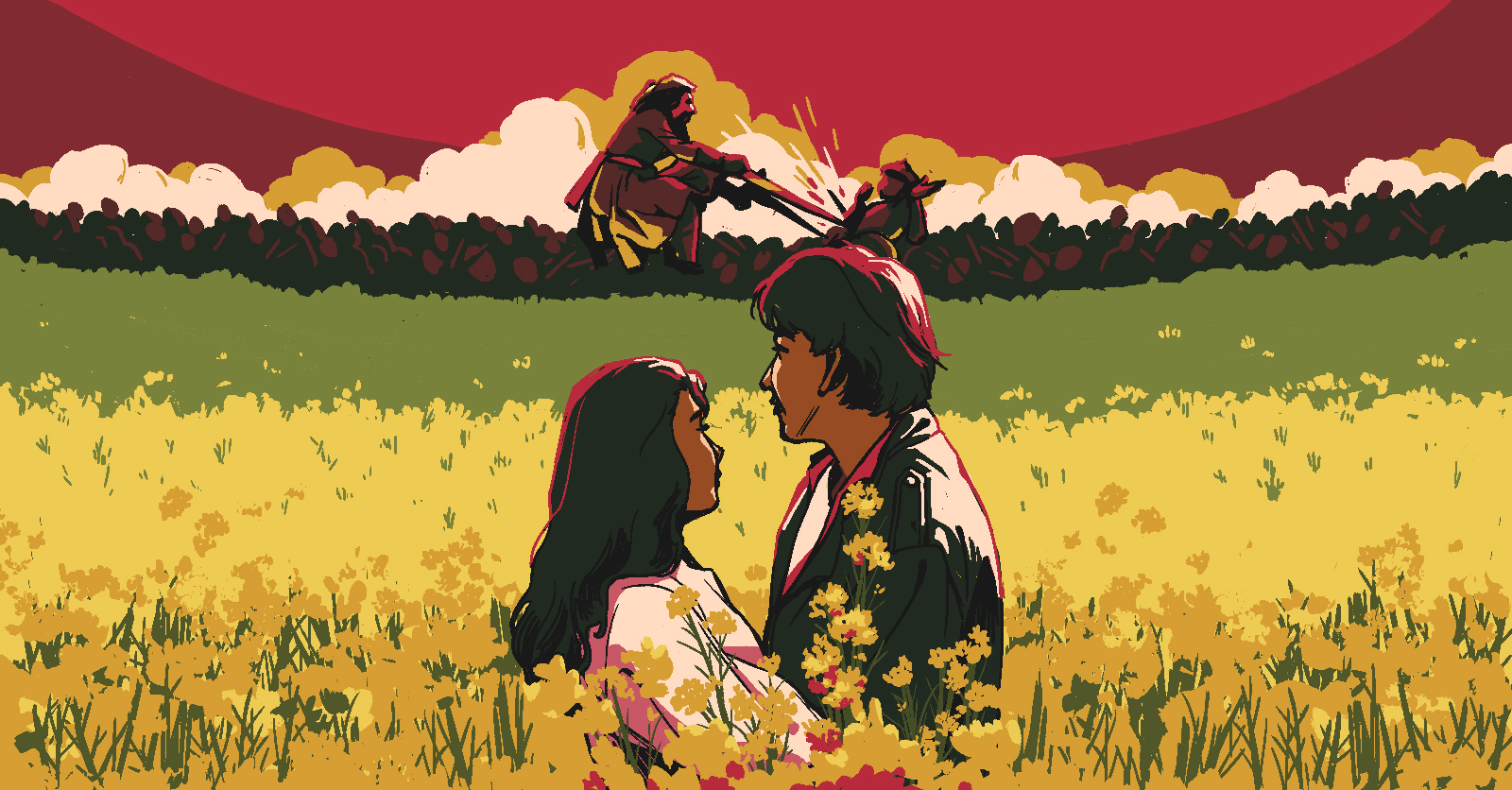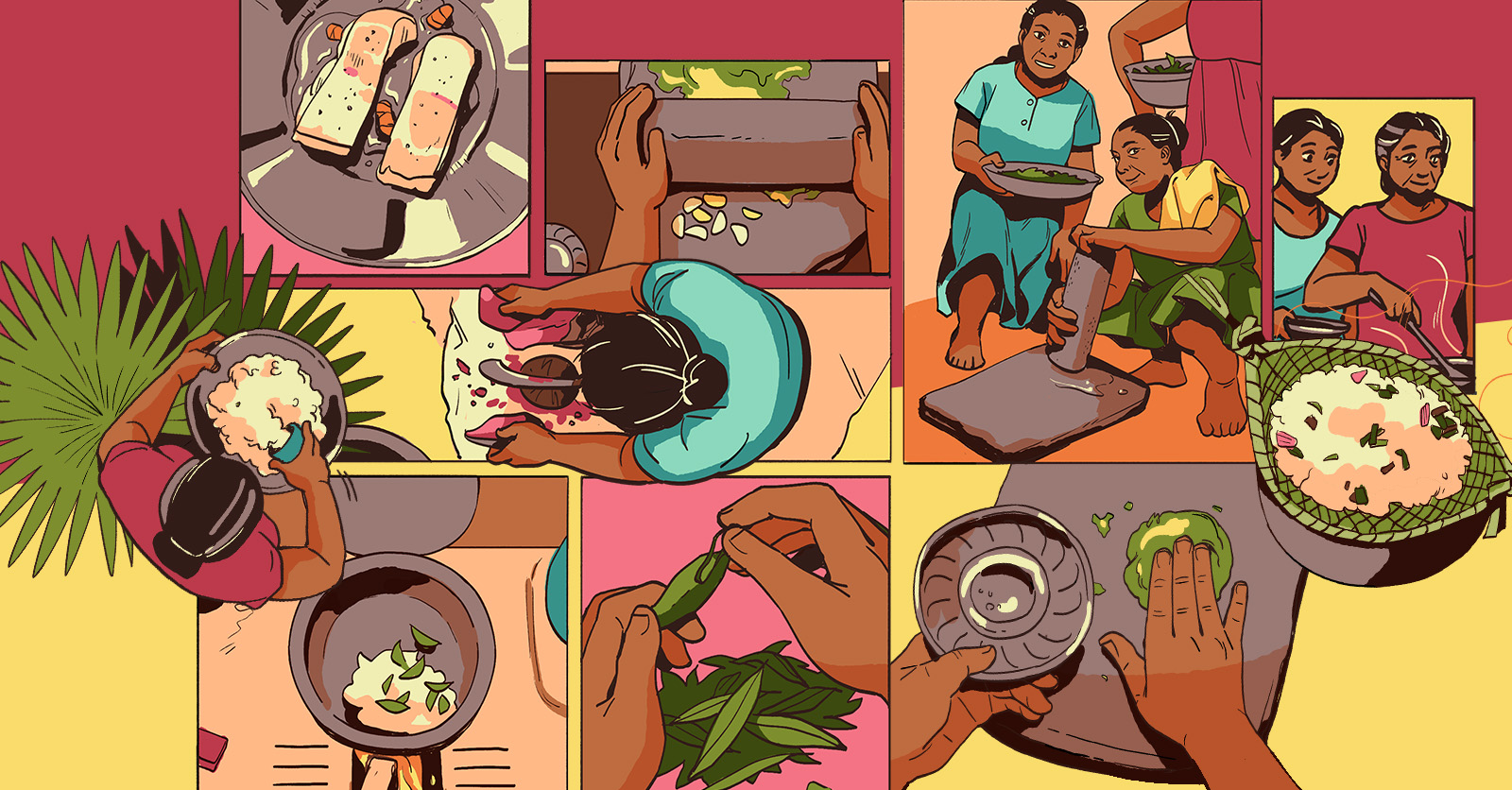More than monkey business
Living on common ground with our local macaques
by Gwyneth ChengMost Singaporeans now know to keep their distance from the native long-tailed macaques, so why are we still reading about human-macaque conflicts these days?
When it comes to local media coverage of the long-tailed macaques, negative headlines aren’t unusual to see.

To be fair, it is not uncommon for the media to speak negatively about our local wildlife. After all, such news is more sensational, with more to talk about.
But headlines published by widely read local media outlets such as The Straits Times, Today Online, Channel NewsAsia, and Mothership show that the details of such sentiments aren’t exactly the same—just look at the difference between how the otters and macaques were covered.
Negative headlines related to otters mostly involve deaths, illnesses, injuries, or other incidents such as fighting among the animals, or hurt caused by man-made items. Naturally, these headlines induce sympathy from readers. Even when attacks by otters were reported, the blame was not placed on the animal, but on the person—a headline claimed, “Jogger, 52, bitten by otter at Kallang Riverside Park regrets not keeping safe distance from the family with pups”.
Macaques barely get the same treatment, and are often the target of blame. The negative headlines related to macaques rarely induce sympathy, as they usually involve instances of conflicts with humans—including macaques coming too close to children, stealing items and food, being aggressive, or attacking. These headlines, which use phrases like “marauding monkeys”, are more likely to induce fear and distaste among readers.
How these articles talk about macaques in Singapore is certainly telling, but they also worsen their reputation. With the long-tailed macaques often portrayed as pesky neighbours, readers are regularly cued to feel annoyance towards them, rather than sympathise with their circumstances. This then affects how we react and respond to these animals.
Decades ago, the long-tailed macaques thrived in local spots that had very little human presence. As Singapore began to develop at breakneck pace, they had to quickly get used to sharing their space. But human beings made things extra difficult for them, as we were destroying and altering their habitats for the sake of urban development at the same time.
Eventually, the macaques were shoved aside and forced to live in patches of vegetation beside residential blocks in the areas they used to dominate.
Like most wildlife, macaques were not originally wired to approach people. But as Singapore became more urban and more people began entering their space, offering them external sources of food, getting used to humans quickly became essential to their survival.
But the relationship between human and wildlife is complex, and naturally, not all interactions go well. The first recorded conflict between humans and macaques occurred as early as the 1960s. Since then, there has been an increasingly urgent need to encourage a harmonious co-existence between people and wild animals.
That’s not to say that Singaporeans are as clueless about how to act around the long-tailed macaques as before. Unlike many other cities, where the people who come into contact with wildlife tend to be tourists, people who interact with them here are residents. That’s a good thing—residents who are more familiar with the macaques are generally less excited or intrigued by them, and will usually stay away.
Moreover, increased efforts at education and more public measures, such as warning signages placed around parks, constantly remind people to keep their distance. Most of us are also now aware of preventative actions such as keeping smaller plastic bags in our backpacks, or not making eye contact when we walk past the monkeys.
In such scenarios, proper preemptive behaviour from us ensures that our encounters with macaques stay pleasant. However, there are still those who cross the line.
When people ignore warnings and continue to offer food to the macaques, more of them will appear and cluster around them. This response is only natural—when there’s food, more macaques will leave the forest and move towards the source. Also, more children being present during instances of feeding likely indicates that adults often feed monkeys to impress or entertain children. This is a bad idea, as that negatively influences how these children will act around macaques later on.
The data shows that more cars slowed down or stopped to watch when someone was feeding the monkeys. This will possibly signal to the macaques that slowing cars can be associated with the availability of food, and prompt them to leave the forest when they see passing cars. This could increase interactions, and even put the monkeys at risk of accidents.
Therefore, while it’s good that only a minority harass, feed, or get too close to the animals, the fact that it still happens continues to send cues to the macaques that humans are still a viable source of food.
As a result of such actions, the macaques instinctively approach areas where there is a higher human presence when they search for food—including private estates and apartment blocks.
At the sight of a wild animal on their property, residents tend to panic and try to shoo them away, sometimes hurting themselves in the process. Even when residents come out of encounters unscathed, they may feel unsafe and worry that the macaques might return, as they tend to dirty and make a mess of the living space.
In response to residents’ concerns and complaints about the macaques, the authorities tend to deploy a set of solutions that involves understanding the issue and providing advice. Only as a last resort, if all alternatives are exhausted and on a case-by-case basis, will relocation be explored. However, in the past, these monkeys were more likely culled.
Unsurprisingly, this aggressive solution was controversial.
Representatives of environmental organisations have publicly spoken out against it in the past, arguing that culling is an extreme knee-jerk measure that has not been proven effective by scientific methods. They also pushed for more transparency regarding the amount of complaints received and the number of animals culled each year.
The majority of the general public didn’t agree with it either.
Fortunately, since all wildlife management duties were transferred from the Agri-Food and Veterinary Authority (AVA) to the National Parks Board (NParks) in 2019, culling is no longer deemed an acceptable solution.
The long-tailed macaques are part of Singapore’s natural heritage, and they have as much right to live on the island as we do. There is a need to move away from such extreme measures of eradicating them and towards encouraging sustainable co-existence between people and local wildlife.
That’s what the Jane Goodall Institute (Singapore), or JGIS, has dedicated themselves to achieving. As the leading primate-focused NGO in Singapore, their longstanding efforts have mainly involved changing how people perceive macaques through education and exposure.
At the heart of their efforts lie the Monkey Walks and the Monkey Guards programme.
Affectionately titled “A Walk with our Neighbours”, the Monkey Walks are led by trained guides, who take a stroll with participants as they introduce them to the macaque troops of Bukit Timah, MacRitchie, and Lower Peirce Reservoir.
The Monkey Guards are trained personnel who patrol areas commonly visited by macaques and guide them safely away from residential areas to avoid interactions. The goal is to signal the barrier between human and animal to the macaques, which will provide a humane solution to the risks of wildlife conflicts in the long run.
Members of JGIS are also part of the Long-tailed Macaque Working Group (LTMWG), under which they actively cooperate with local government agencies and organisations such as the Mandai Wildlife Group to protect the macaques.
The LTMWG has tirelessly introduced efforts to curb the risk of human-wildlife conflicts, including the No Feeding Campaign. For this campaign, JGIS recently conducted a public sentiment survey to get an understanding of how people view our local primates these days, and how that could affect and transform solutions in the future.
These efforts are even more urgent now that long-tailed macaque numbers are in huge decline across the globe, with the IUCN declaring their status as “endangered” recently, on 7 March 2022. This was an update from how the species saw their status escalate from “least concern” to “vulnerable” in 2020, bypassing the intermediate “near threatened” rank entirely.
Human-wildlife relationships are complex and therefore not easy to change or control. As residential spaces are now incorporating and located beside more greenery, the boundaries between urban development and nature will become even more unclear. This means there is a greater risk of conflicts, which could become extra dangerous, if the global pandemic has taught us anything.
As such, it is important for us to take steps to drastically minimise the risk of negative interactions. Efforts from JGIS and other wildlife NGOs to increase public knowledge and awareness, alongside the government’s animal management plans, are productive steps forward, but it all boils down to individual action. After all, macaques are still wildlife that respond instinctively to our behaviour.
It’s not a difficult change—just like how we steer clear of monitor lizards and pigeons, we can do so for the monkeys too. By keeping our distance, we signal to the macaques that we are not a viable source of food, and in the long run, these actions will result in less negative press for our primate friends.
If you see a macaque when you’re outdoors:
- Remain calm and quiet, avoid direct eye contact
- Back away slowly if you’re too close. If you are far enough away, continue to keep your distance
- Keep food out of sight
- Put all plastic bags into a backpack, regardless of whether there’s food in it
- Do not feed the monkeys
If a macaque enters your home:
- Remain calm and quiet, avoid direct eye contact
- Look for an escape route for the monkey
- While keeping your distance, hit the ground or walls with a stick to lead them towards the exit
- Alternatively, close the doors to other rooms and keep yourself in a safe place until the monkey leaves
- If your apartment is frequently visited by monkeys, consider meshing your windows. Make sure all windows are closed when no one is home
This story was edited for accuracy on 2 August 2022.
Julia is a freelance data journalist, data visualization designer/developer and cartographer with a focus on environmental issues, biodiversity conservation, democracy and human rights. Julia is from the U.S. and Taiwan, and currently lives in Paris. Her academic background is in conservation biology, entomology, remote sensing and Japanese. Julia is also currently working on Taiwan Data Stories as a side project.
The Jane Goodall Institute (Singapore) (JGIS) is a non-profit charity organisation (RROS 1066/2007) focused on inspiring individual action to improve the understanding, welfare, and conservation of the environment and its wildlife, and to safeguard the planet we all share. JGIS was founded in 2007 to amplify Dr. Jane Goodall’s work in Singapore.
Sabrina assists Dr. Andie Ang with research on the conservation of the Raffles’ Banded Langurs while dedicating her time to macaque education and outreach. She provides Monkey Guards training to members of the public as well as nature groups/agencies. She also collaborates with animal groups around the region to share and exchange knowledge regarding long-term solutions to help people and macaques. She believes in the need for the community to evolve, embrace, and learn to live with the long-tailed macaques as the range of activity between people and local wildlife overlap.



